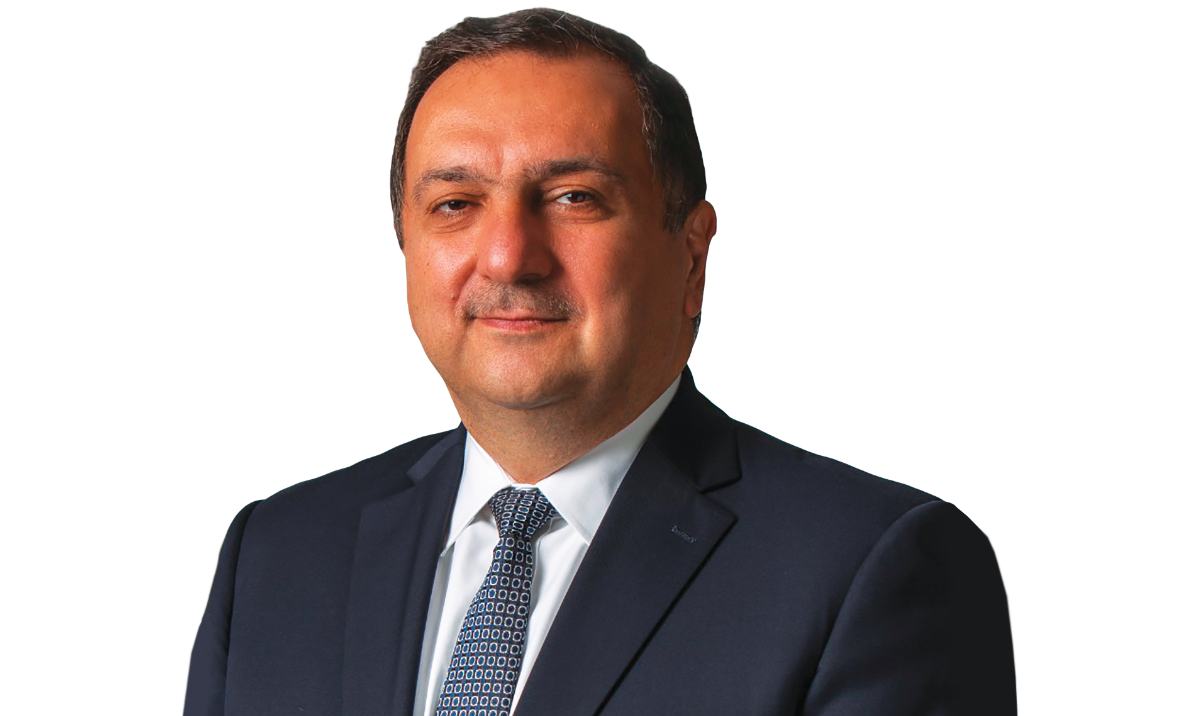CAIRO: ChatGPT and other artificial intelligence platforms have created a wave of change in the global workforce that could turn out to be a useful tool for Saudi Arabia’s personnel to boost economic development.
AI has raised concerns about replacing manpower with robots and software but as seen with ChatGPT’s massive popularity, embracing innovation can also serve as an opportunity to boost productivity.
Alleviating employees’ fear
According to a survey by Kaspersky, 48 percent of employees in the Kingdom fear losing their jobs to AI. However, in an exclusive interview with Arab News, Raymond Khoury, senior partner at Arthur D. Little, has alleviated these fear by sharing some insights on the beneficial impact of AI and ChatGPT.
“Nurturing the right talent with a strong AI culture is the human dimension that needs to be availed for successfully imbedding AI into operations,” he said.
“With the true value of AI realized through individual or collective team innovation, experimentation, learning and collaboration, organizations need to promote and maintain such an AI culture.”
Khoury went on to explain that the implementation of AI technologies and the use of robots would certainly require human labor that can positively impact Saudi Arabia’s workforce.

“Looking at career-related skills from a talent management perspective, AI, specifically ChatGPT, can positively impact recruitment and hiring, training and development, upskilling and reskilling, talent collaboration as well as knowledge management,” he said.
Khoury believes that ChatGPT and AI can provide tailor-made training programs for employees, access to customized online courses, and foster collaboration and communication amongst team members.
“ChatGPT and AI will likely affect the Kingdom’s workforce, reshaping and even emancipating it in both the short and long term,” he added. “It will help the workforce to become more productive within the respective organization with increased efficiency as more mundane and repetitive tasks get automated, leaving workers with more time to focus on strategic activities.”
Kaspersky’s survey supports Khoury’s point as 50 percent of employees believe AI increases productivity and 51 percent believe that incorporating robots will open opportunities for employees to retain better positions.
Khoury explained that AI will impact the Kingdom’s public sector as well as healthcare, transportation, energy, utilities, finance and retail.
“For the government, AI will allow for more efficient internal operations and more seamless external constituent service delivery,” he said.

Looking at career-related skills from a talent management perspective, AI, specifically ChatGPT, can positively impact recruitment and hiring, training and development, upskilling and reskilling, talent collaboration as well as knowledge management.
Raymond Khoury, Senior partner at Arthur D. Little
He added that AI can greatly transform healthcare by personalizing treatment for chronic diseases and predetermining outcomes as well as enhance diagnosis which is already implemented in some countries.
“For transportation, AI can be used to optimize road or shipping routes to ensure timely commutes or logistics delivery. Traffic patterns can be used to enable intelligent traffic signals operations, ensuring traffic flows in the least disruptive manner,” Khoury explained.
With regard to the energy sector, innovative technologies can pinpoint various oil and gas exploration activities using certain algorithms to produce a better level of accuracy while in finance, AI can be used to detect fraud on a large scale.
“And for retail, AI can create new opportunities for growth and innovation, particularly in customer segmentation and targeted marketing campaigns. Add to this the use of sensory data and AI tools to analyze and extract marketing insights from shopping mall footfall or supporting business setup decisions at mass transit stations,” he continued.
The flip side
Khoury described the role of AI in creating a positive impact on workers by creating more productive and efficient outcomes by removing mundane and repetitive tasks from employees.
However, on the other hand, the automation of tasks might put employee stability in danger when the human factor is no longer required.
HIGHLIGHTS
• ChatGPT and AI can provide tailor-made training programs for employees, access to customized online courses, and foster collaboration and communication amongst team members.
• Embedding AI in the operations of Saudi companies and employees will require a holistic approach that clearly defines the strategic objectives, advantages and disadvantages.
• Kaspersky’s survey supports Khoury’s point as 50 percent of employees believe AI increases productivity and 51 percent believe that incorporating robots will open opportunities for employees to retain better positions.
“On the negative side, ChatGPT will most likely replace workers who are entrusted to fulfill mundane and repetitive tedious functions which will get automated,” Khoury said.
He added: “This will push workers to acquire new skills through retraining or upskilling to become more marketable in a more and more AI-enabled digital world.”
To put things into context, Khoury said that ChatGPT recently produced a list of jobs that it will likely replace in the future.
“The above stated affects and their impact will obviously depend on the pace of technological change and the adaptability of both workers and organizations, in both the public and private sectors, to these changes as brought forward by ChatGPT and other future generative AI tools,” Khoury pointed out.
Implementation of AI
Khoury explained that embedding AI in the operations of Saudi companies and employees will require a holistic approach that clearly defines the strategic objectives, advantages and disadvantages.
“Understanding the operational bottlenecks or mundane functions within an organization and knowing how AI can address them with clear articulation of goals and implementation objectives is of paramount importance from the onset,” he said.
“With this foundational step completed, next comes the need to understand which specific AI tools or technologies can help the organization and workers achieve these strategic business objectives, and which best set of AI tools or technologies can be deployed optimally within the organization given its current and planned investments in information and communication technologies,” Khoury explained.
In addition to a strategic roadmap, fostering an optimistic environment for learning and improvement is mandatory to ensure a positive employee and client experience.
“Seemingly intricate, the embedding of AI into organizations’ operations requires solid leadership, a futuristic view, and agility in making timely changes as and when needed, and at times proactively,” Khoury concluded.






























